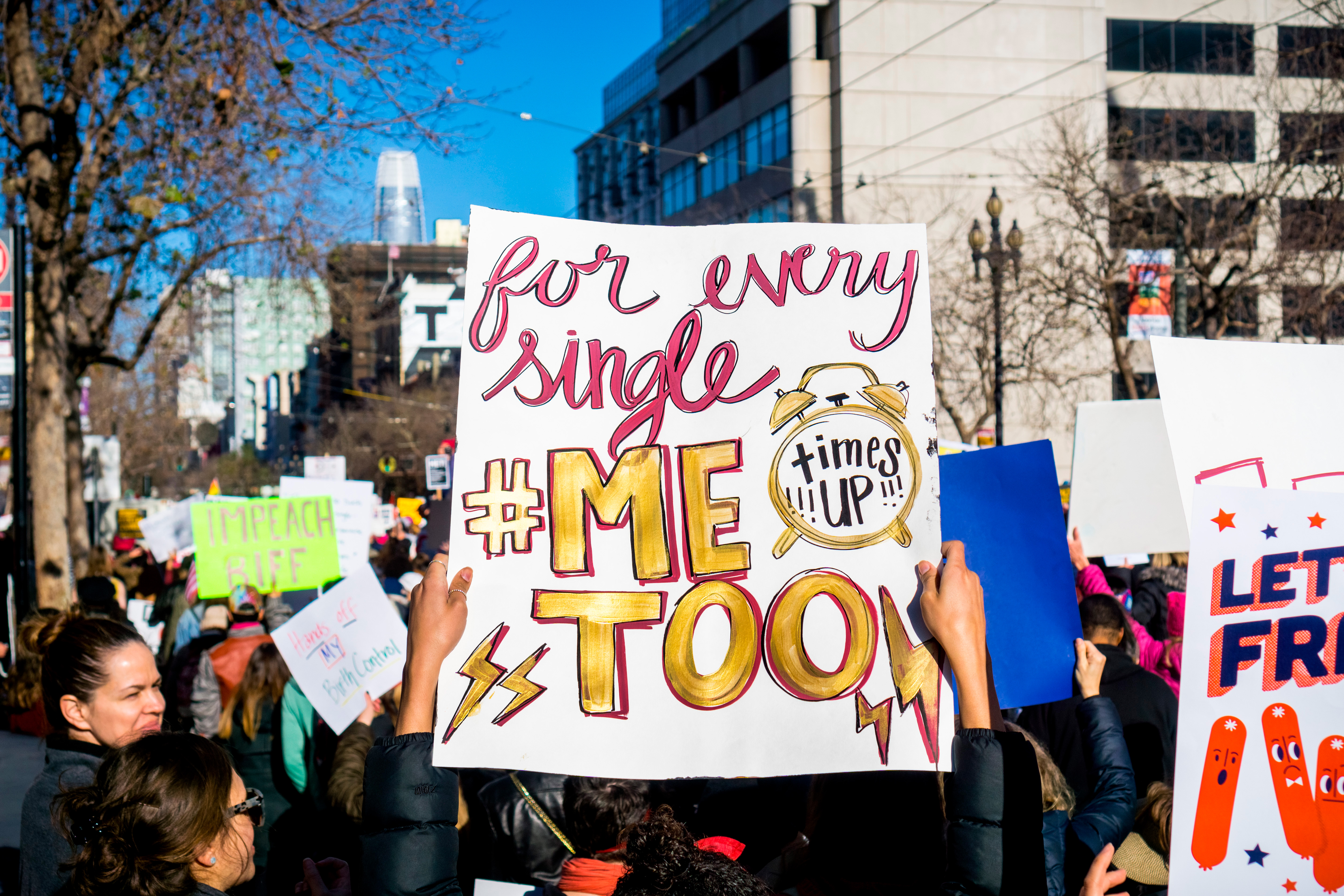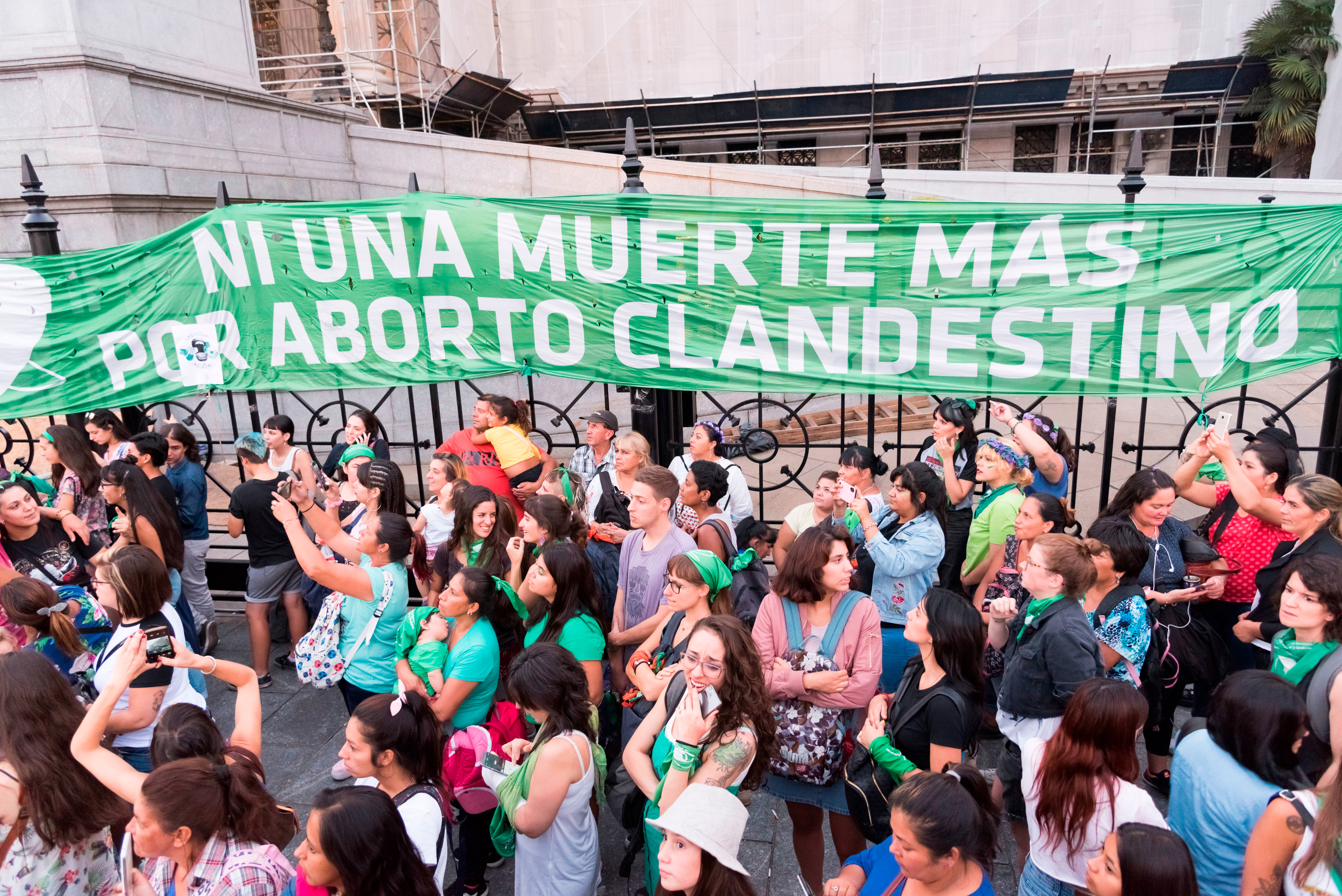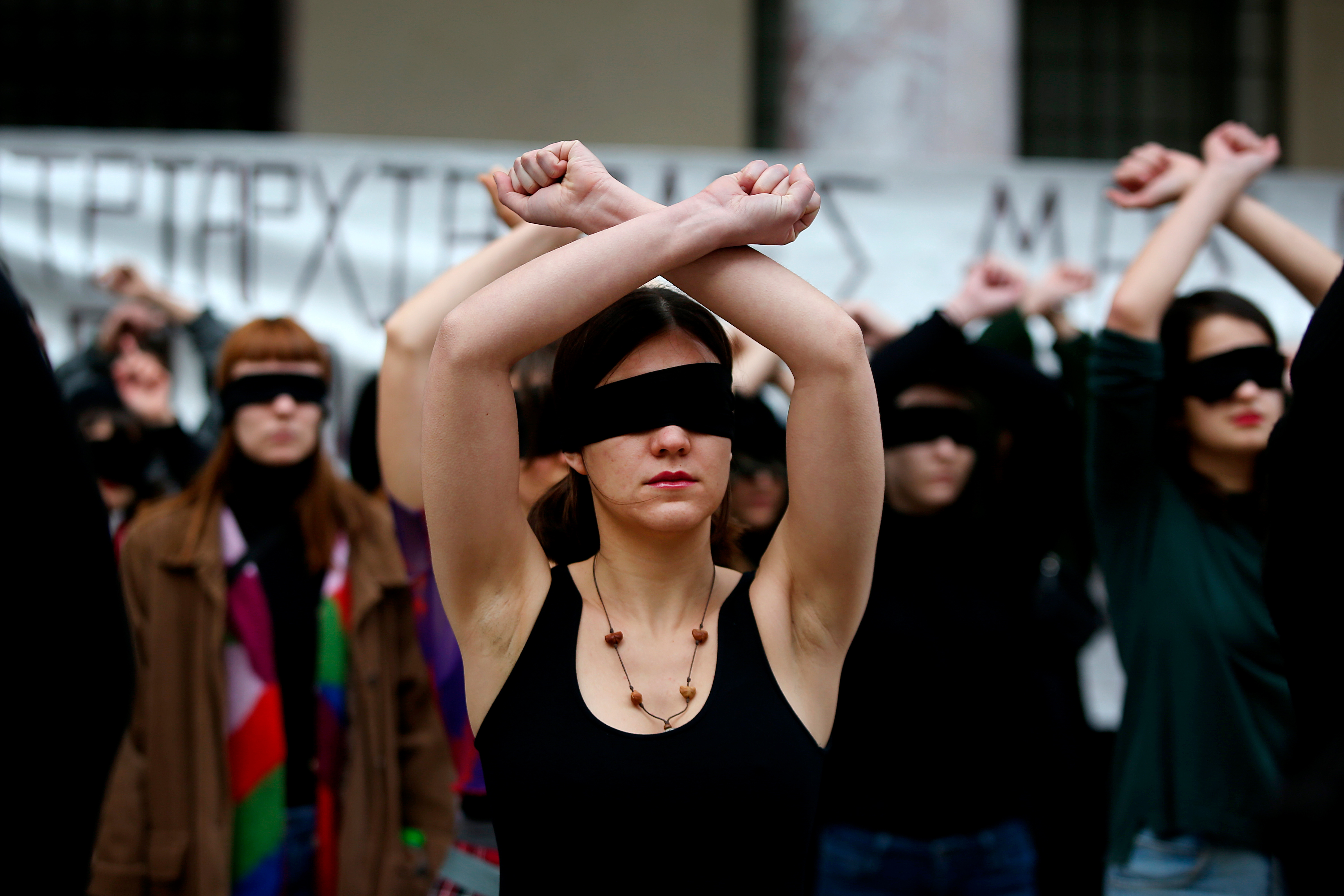New movements across the world have very much dynamised feminism. Young people have come into politics and activism after a period when it seems not very much was happening and when feminism was denigrated as something that was over, or achieved, or pointless.
The response from young feminists from 2010 onwards, but growing in momentum through that decade, has been to say “not so much has been achieved”. We are still without equality and we still lack effective policies dealing with the kinds of issues that we are suffering from. We see enormous support for movements like Me Too, which travelled across the world to nearly all countries. The Million Women Rise is another example of a dynamic global movement against violence against women.
A significant change in the feminism of today is the access to new technologies. Social media makes everything happen much more quickly. Young people who were born at the beginning of the millennium grew up entirely at a time when the internet was available to them. It’s second nature to them. It’s available as a resource and has been used with enormous creativity. That creates an ability to get things done quickly – it speeds up time, it shrinks space. Not so long ago, within the context of the movement, somebody in Latin America decided to make a dance and a song titled ‘You are the rapist’. Within two days, this had travelled across the world. It was in India, it was in the Far East. There were people making videos, putting them online. This is the kind of thing that has made feminism even more internationalist than it was in earlier epochs. Because of its universalist principles about all women, feminism has always committed itself to an internationalist presence. That’s been core to feminist ideas, and new technologies have played an important role.
New feminist struggles in a more fragile world
Young feminists today are more educated than any other generation. They are clearly more tech-savvy. They have been brought up by parents in countries and times that were more socially liberal. There are exceptions, of course, but they have expected to acquire a good education and decent jobs. They’ve expected to do well in their lives, but they find themselves going to work and suffering from sexual harassment, not getting promoted, being offered second-rate jobs. They find when they think of having a family that there’s no support for childcare. And they are angry about the fact that we are seeing a rise in violence against women. Moreover, there seems to be impunity; there’s a very slow follow-up from the police; the judges and the courts don’t seem to be taking the right steps to ensure that lessons are learned from this; and, of course, cultural norms remain relatively unchanged.
Therefore, young feminists face a world in which there’s a great deal more insecurity than perhaps their grandmothers or even their mothers experienced. Jobs are more precarious; contracts are shorter. There’s a great deal more uncertainty. The kinds of support and securities that underpinned their lives in many parts of the world, such as social policy and social welfare, were taken away by 40 years of neo-liberal policies. So, there is a real structural question about the fragility of the world in which young people live, and that has affected the kinds of struggles that young feminists engage in.
Although there are differences within this generation, there are also connections with earlier moments of feminism – take the case of one of the most successful movements in Latin America, the Ni Una Menos movement, against feminicide. The movement is not simply a protest: it’s demanding rights, justice and a whole range of policies. It seems like sometimes people misread protest movements as being detached from programmatic thinking and policymaking but, actually, there’s far greater connection between protest movements and legal change. There’s a great deal more going on in terms of seeking allies. The Ni Una Menos movement involves sympathetic senators and sympathetic journalists. It involves feminists from earlier generations that have been able to achieve a considerable amount of norm change and policy activism.
Equally, the reproductive rights issue is particularly important for young women. If you look at the issue globally, you can see that the huge deficits in public policy are to do with reproductive health. For young women, there are considerable risks if these issues are not taken seriously. There was a huge mobilisation in Argentina in favour of changes to the abortion laws, and there is new legislation pending. This is the result of generations of activism, but it is young women now who are taking the lead and who are doing politics in new ways, with different allies, and wanting to see changes in their society that go beyond single issues. Young feminists are radically inclusive in their outlook. They want society to be more responsive to justice. They want justice for LGBTQ people. They want justice for Black people, marginalised groups, indigenous groups. They try to include these struggles in an intersectional way so that they’re not just dealing with one part of humanity but trying to broaden it to be more radically inclusive.
We certainly saw feminist ideas becoming mainstreamed in the last decade or so – it was suddenly cool to be a feminist. Even young men would quite comfortably call themselves feminist and join feminist platforms and protests. There has been a cultural shift, and I think it’s partly to do with the sense that society has to change. It’s a generally shared perspective among young people and it has, to some degree, percolated through society, partly as a result of the kinds of campaigns that have been going on during this decade, not least the Me Too campaign. The Violence Against Women campaign highlighted just how extreme a hostile reaction could be to women who take up work – this horrified people who hadn’t thought about it.
A number of these issues shifted norms. It was not only cool to be a feminist but advertising companies suddenly changed their game and were hopping on the bandwagon to be cool. It was part of the common sense of the last decade that you don’t treat women badly, that “that’s uncool”.
But norm changes have to be rooted in something. Unless they’re sustained and unless they are protected and worked upon, positive norms can fade away and be put in the dustbin of history if new governments hostile to progressive movements come to pass. We should never be complacent that norms change once and for all. We have to be on guard for rollbacks in issues of rights. We are seeing that in many parts of the world.


